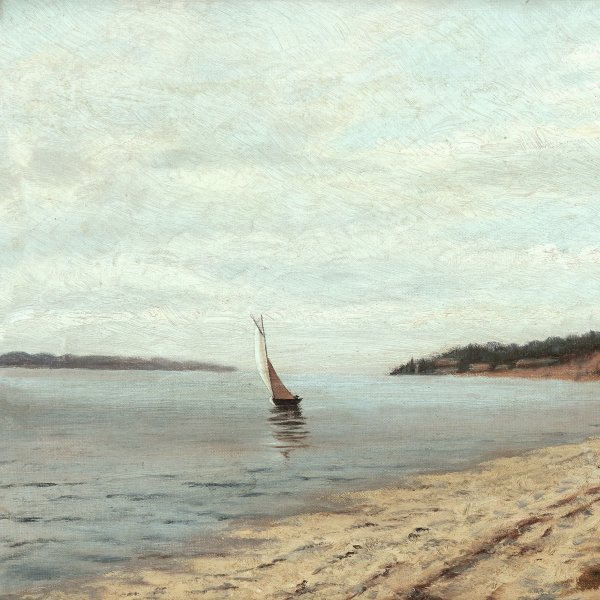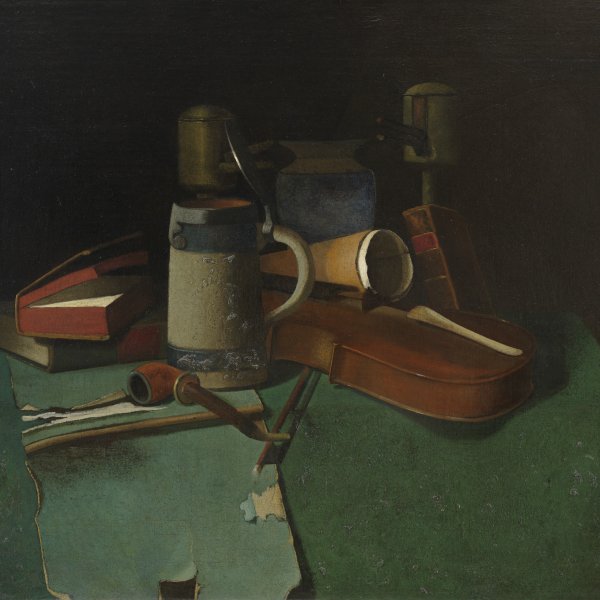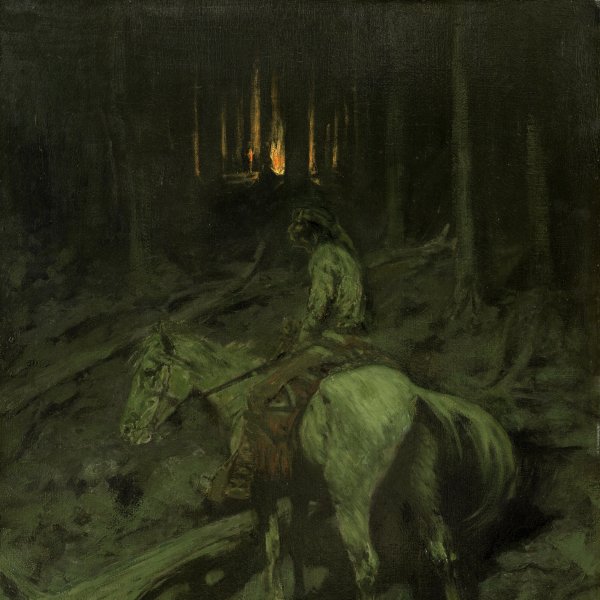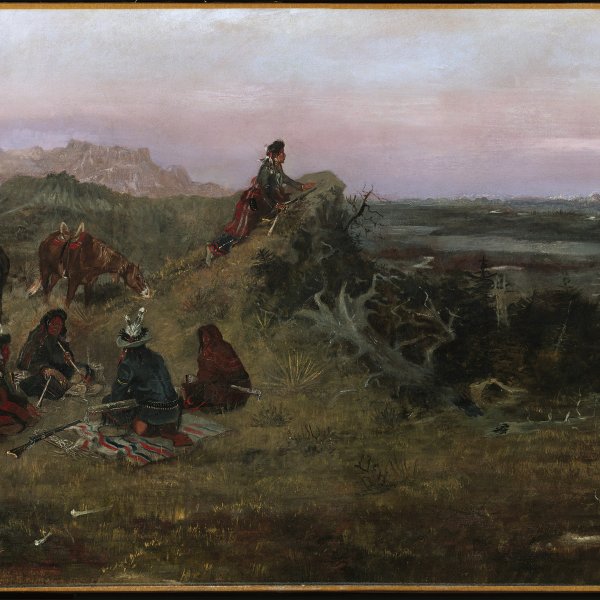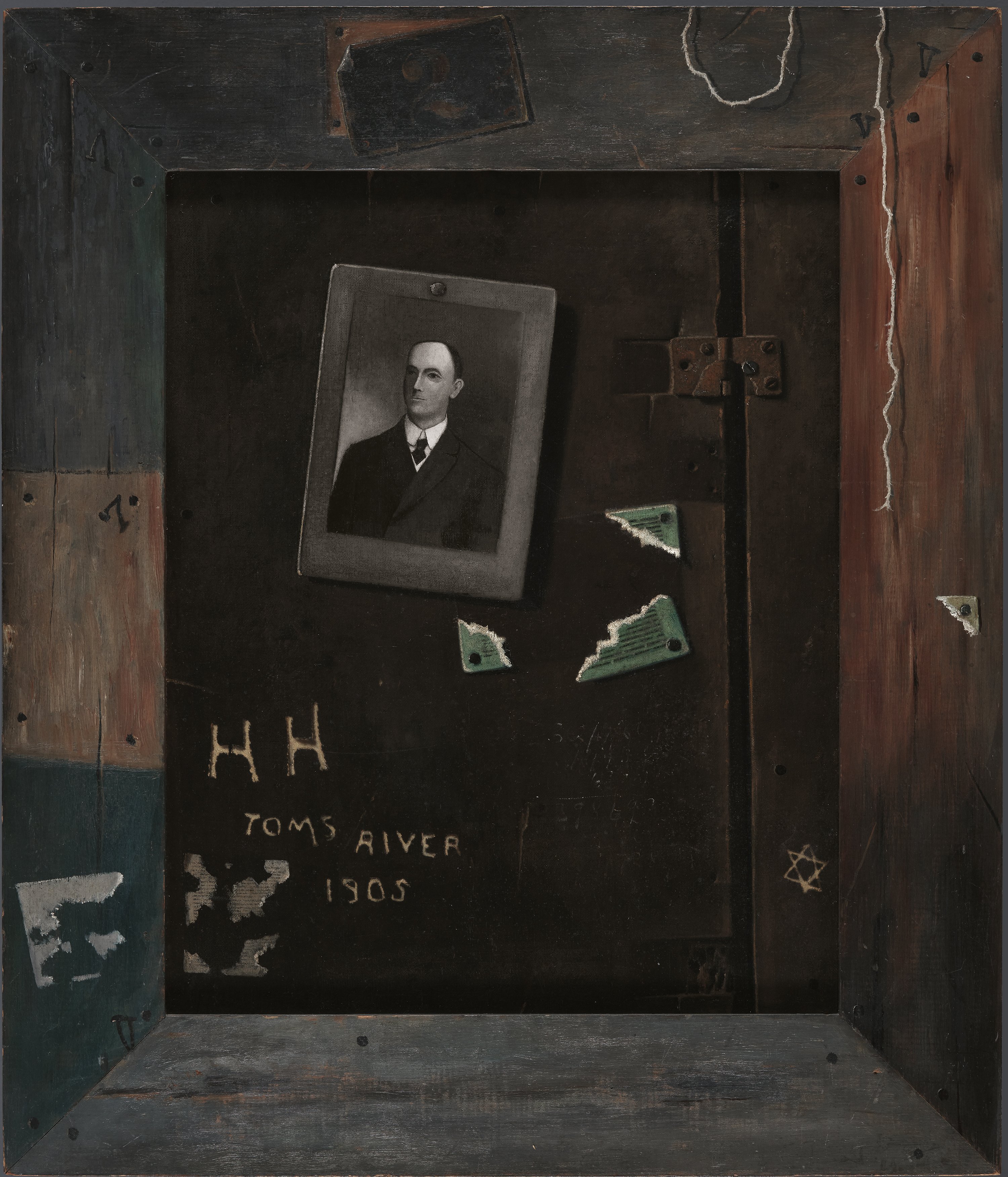Toms River
The last phase of John Peto’s career was characterised by a highly individual and distinctive style that distinguishes him from the American trompe l’oeil painters who had notably influenced his work.
Toms River uses elements typical of his work at this phase, including the picture frame, the painted photographic images and the presence of scraps of paper and other trompe l’oeil elements seemingly attached or nailed to the picture surface. The use of illusionistic textures is particularly evident in the seemingly faded and damaged wood onto which the title of the painting appears to be scratched in. Toms River was also the name of Peto’s house. The initials H. H., again seemingly scratched in, probably refer to the man in the photograph, Hoffman Ham, Peto’s maternal grandfather. The Star of David alludes to the suffering of the Jewish people and possibly also to Peto’s personal life, given that he was involved in family conflicts at this time.
CM
Paloma Alarcó
Emotions through art
This artwork is part of a study we conducted to analyze people's emotional responses when observing 125 pieces from the museum.





